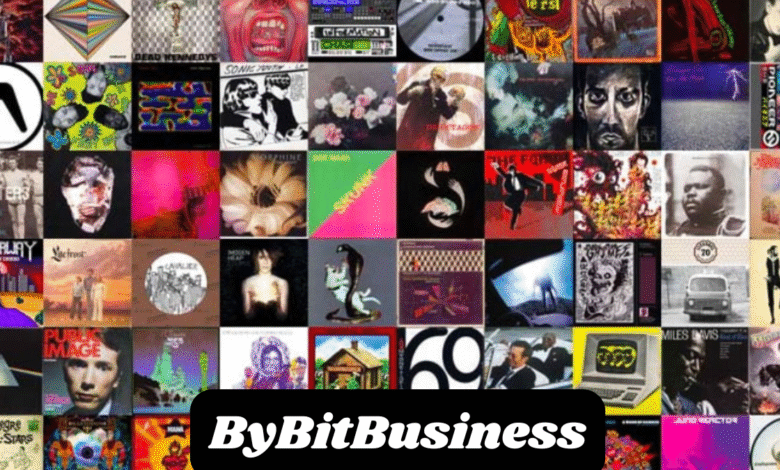Discog Definition: An In-Depth Understanding of the Term

The term “Discog Definition” has a variety of uses in the context of music, especially when referring to a significant resource and community related to cataloging musical works. Whether you are a casual listener, an avid music collector, or a music industry professional, understanding the concept of “Discog” can significantly enrich your knowledge of how music is archived, discussed, and celebrated. In this article, we will explore the meaning and significance of the term “Discog,” diving into its definition, uses, and importance in today’s digital music ecosystem.
What Does “Discog” Mean?
The word “Discog” is often short for “Discog Definition” a term used in the music industry to refer to a complete list or catalog of recordings by a particular artist, band, or composer. A discography typically includes all types of music releases, from albums and singles to extended plays (EPs) and various collaborations. Discography serves as a comprehensive record of an artist’s work and offers insight into their musical evolution over time.
In addition to the general meaning of discography, the term “Discog” is also commonly associated with Discogs, a popular online platform and community designed to catalog music releases. Founded in 2000, Discogs has grown into one of the largest online databases of music, with over 13 million recordings and contributions from music enthusiasts worldwide.
In this article, we will focus on both the general meaning of discography and the specific platform, Discogs, to fully explain the significance of “Discog” in the modern music world.
The Importance of Discogs in the Music Industry
When discussing “Discog” in relation to music, it is crucial to highlight Discogs as a tool and platform that has changed how collectors, fans, and industry professionals interact with music records. Discogs acts as both a comprehensive database and a marketplace for music lovers and collectors.
Cataloging Music Releases
One of the most notable features of Discogs is its vast catalog of music releases. It includes information about every release imaginable: from vinyl, CD, and cassette to digital formats like MP3 and FLAC. Each entry on Discogs includes vital details such as:
- Artist name
- Release date
- Tracklisting
- Record label
- Format (vinyl, CD, digital, etc.)
- Catalogue number
This detailed information helps collectors track rare and obscure releases, compare versions of albums, and stay updated on new releases from their favorite artists. Discogs also provides metadata about various pressings of a record, allowing users to differentiate between different editions of an album.
Discogs as a Marketplace
Beyond cataloging music, Discogs is also a thriving marketplace where users can buy and sell records. This aspect of Discogs has made it a key player in the world of vinyl collecting, where rare albums or limited editions can fetch high prices. The platform allows collectors to find specific records that might be hard to locate elsewhere, as well as providing sellers a global platform to reach potential buyers.
The marketplace feature of Discogs offers transparency in pricing, enabling collectors to see what prices similar items have been sold for. As a result, it provides a level of trust for both buyers and sellers, making it an ideal environment for people looking to add to their music collections.
Community and Contribution
Discogs is more than just a platform for buying and selling music. It also offers a space for music fans and industry professionals to contribute to the database by adding new releases, reviewing albums, and discussing various music genres. This communal approach to cataloging allows the platform to grow continually and evolve with new music releases.
Whether it’s through adding previously unreleased music or correcting mistakes in album details, users on Discogs actively contribute to the platform’s vast collection. This open, community-driven approach has been key to Discogs’ success, making it one of the most extensive and trusted music databases available today.
Discog and the Modern Music Landscape
The rise of digital music has made it easier for artists to release their work, but it has also led to an overwhelming amount of content available across various streaming platforms. In this environment, resources like Discogs become essential for music fans, collectors, and scholars alike.
Preserving Music History
Discogs helps preserve the history of music by cataloging not just popular mainstream albums but also lesser-known releases. Independent and underground music scenes that might not get the same attention as top-charting artists find a platform on Discogs, where their works are documented and celebrated.
By keeping an accurate, detailed record of music across all genres and time periods, Discogs contributes to the historical preservation of music in a way that was not possible before the digital age. As new generations of listeners discover these records, the platform continues to play an important role in music scholarship.
Support for Independent Artists
Discogs also supports independent artists by offering a free way for them to list their music and reach a broader audience. As the platform allows anyone to contribute, even small, independent labels or self-released musicians can share their work with the world without the need for major industry backing.
This level of accessibility is crucial for promoting music that may not have mainstream appeal but still deserves recognition. In a world dominated by streaming giants, platforms like Discogs provide a valuable alternative for independent musicians to maintain control over their work and ensure it reaches a dedicated and interested audience.
Fostering a Global Music Community
Another notable aspect of Discogs is its ability to bring together music fans from around the world. By offering a shared space for users to contribute, discuss, and trade music, Discogs creates a global community that connects individuals who may have never otherwise encountered each other. This international network of users helps drive a deeper appreciation for global music cultures and fosters connections across geographic boundaries.
Frequently Asked Questions (FAQs)
1. What is the difference between “Discog” and “Discogs”?
“Discog” is often used as an abbreviation for Discography, which refers to a complete list or catalog of recordings by an artist. “Discogs,” on the other hand, is a specific online platform and community that hosts a comprehensive music database and marketplace. While “Discog” can be a general term for discography, “Discogs” refers to a particular website that has become a vital resource for music enthusiasts.
2. Can I sell music on Discogs?
Yes, Discogs offers a marketplace where you can sell music. You can list records, CDs, and even digital music for sale. The platform charges a fee for transactions, but it provides a trusted environment for buying and selling music, with features like user feedback and price tracking to ensure transparency.
3. How can I contribute to Discogs?
Anyone with a Discogs account can contribute to the database by adding new releases, updating existing information, and providing additional details such as release dates, catalog numbers, and more. Users can also submit corrections or additions to album details and participate in discussions about music.
4. What types of music are on Discogs?
Discogs catalogs all types of music, from mainstream genres like pop, rock, and hip-hop to niche genres such as experimental, classical, and jazz. The platform is home to music from independent artists, labels, and major record companies alike, making it one of the most diverse and comprehensive music databases in existence.
5. How does Discogs maintain the quality of its database?
Discogs relies heavily on its community of users to ensure the accuracy and completeness of its database. Users are encouraged to contribute and verify details for releases, and the platform has built-in mechanisms for quality control. Additionally, professional curators and industry experts contribute to maintaining the integrity of the platform’s catalog.
6. Is Discogs a good resource for music collectors?
Absolutely! Discogs is one of the best resources for music collectors, offering a detailed catalog of both mainstream and rare music releases. Its marketplace feature allows users to buy and sell records, and the database provides valuable insights into the history and evolution of musical works. Whether you are looking for rare vinyl pressings, limited edition albums, or obscure releases, Discogs is an indispensable tool for collectors.
Conclusion
The term “Discog Definition” short for discography, is essential to understanding how music is cataloged, discussed, and celebrated in the modern world. Whether referring to the general concept of a discography or the specific online platform Discogs, the term has become synonymous with a thriving global community of music lovers, collectors, and professionals. Through its vast database and marketplace, Discogs has transformed how we engage with music history and fostered a sense of connection among fans across the globe. In an age where music is often lost in the vast sea of digital content, platforms like Discogs ensure that the stories behind the music are never forgotten.



